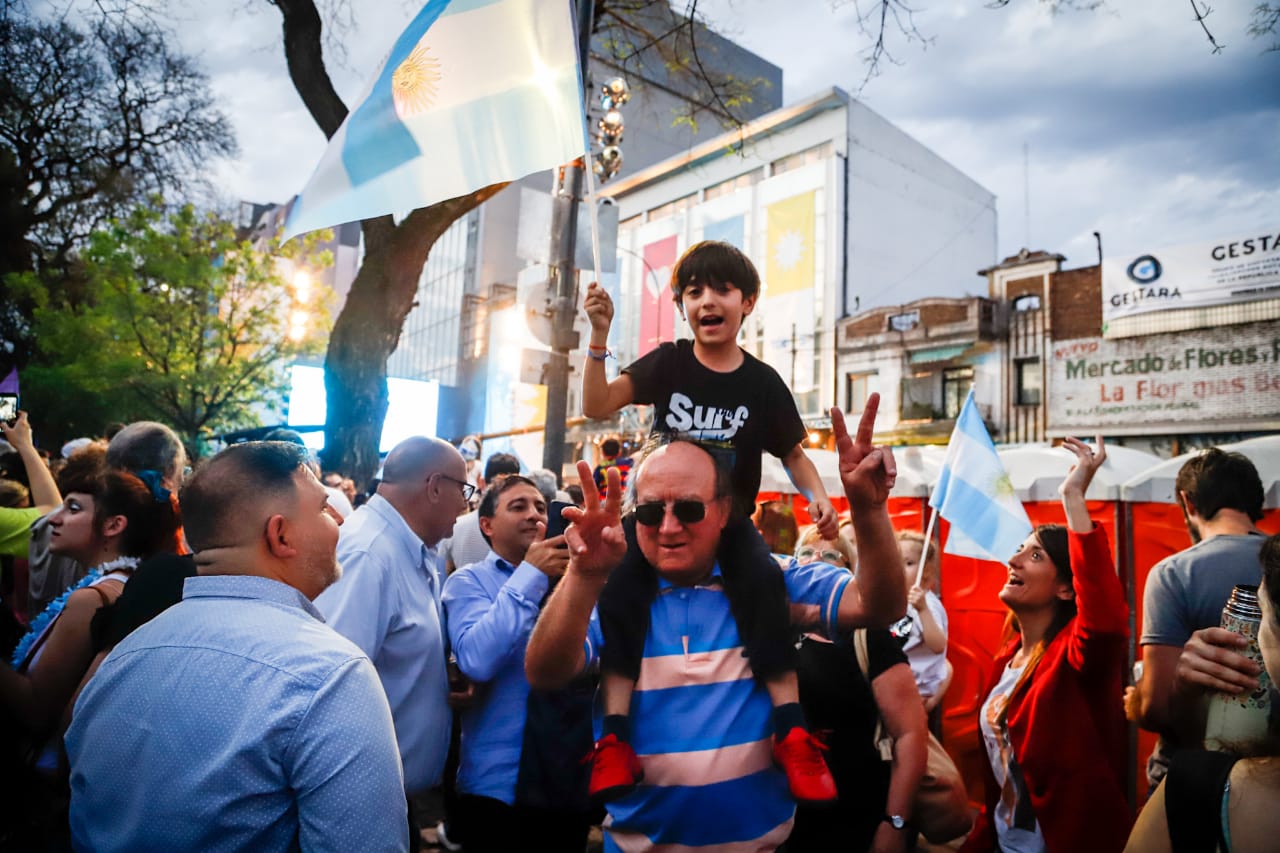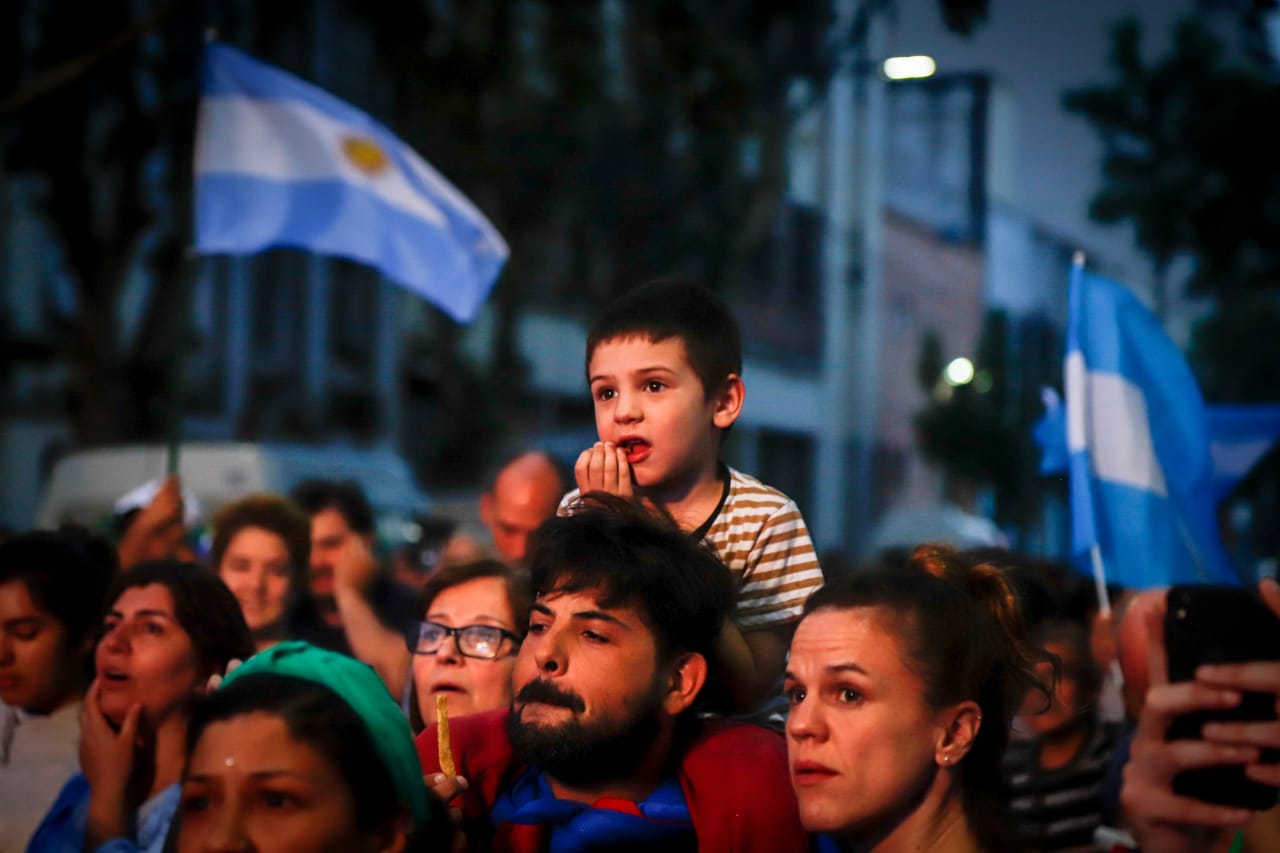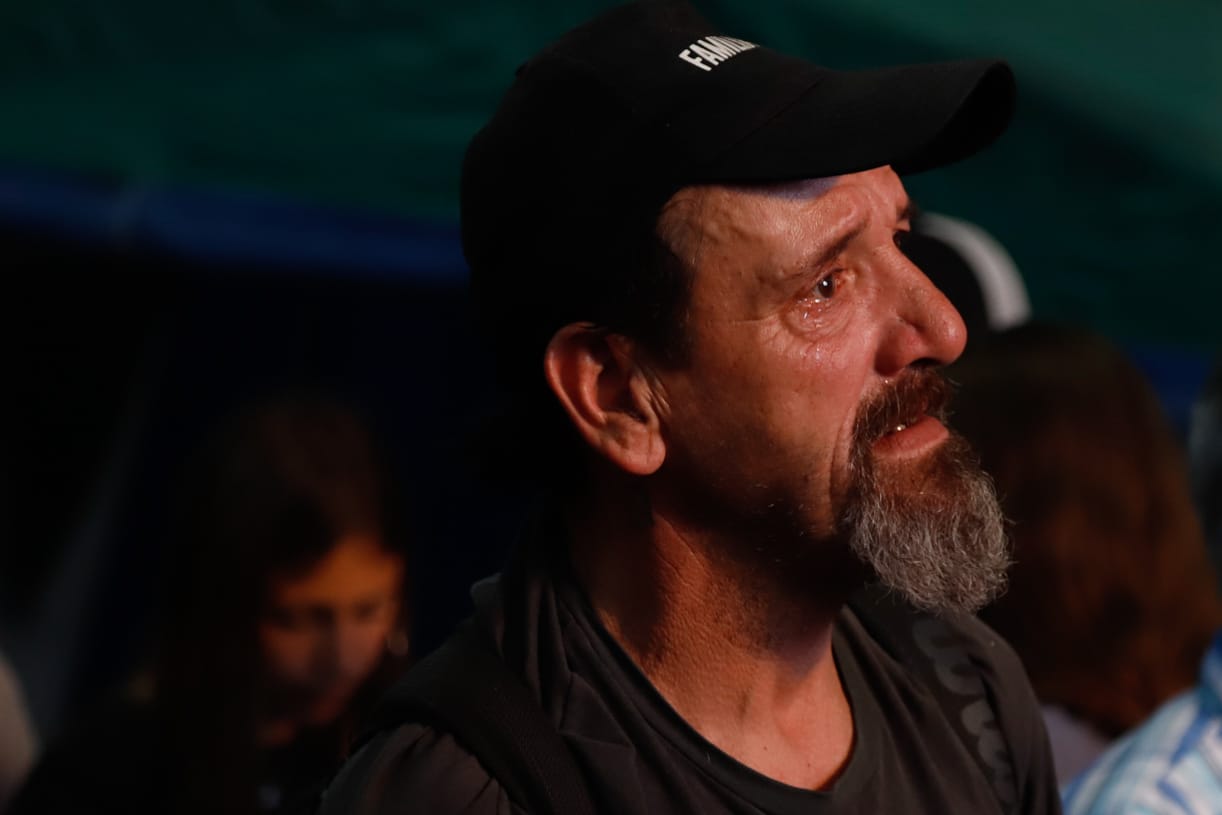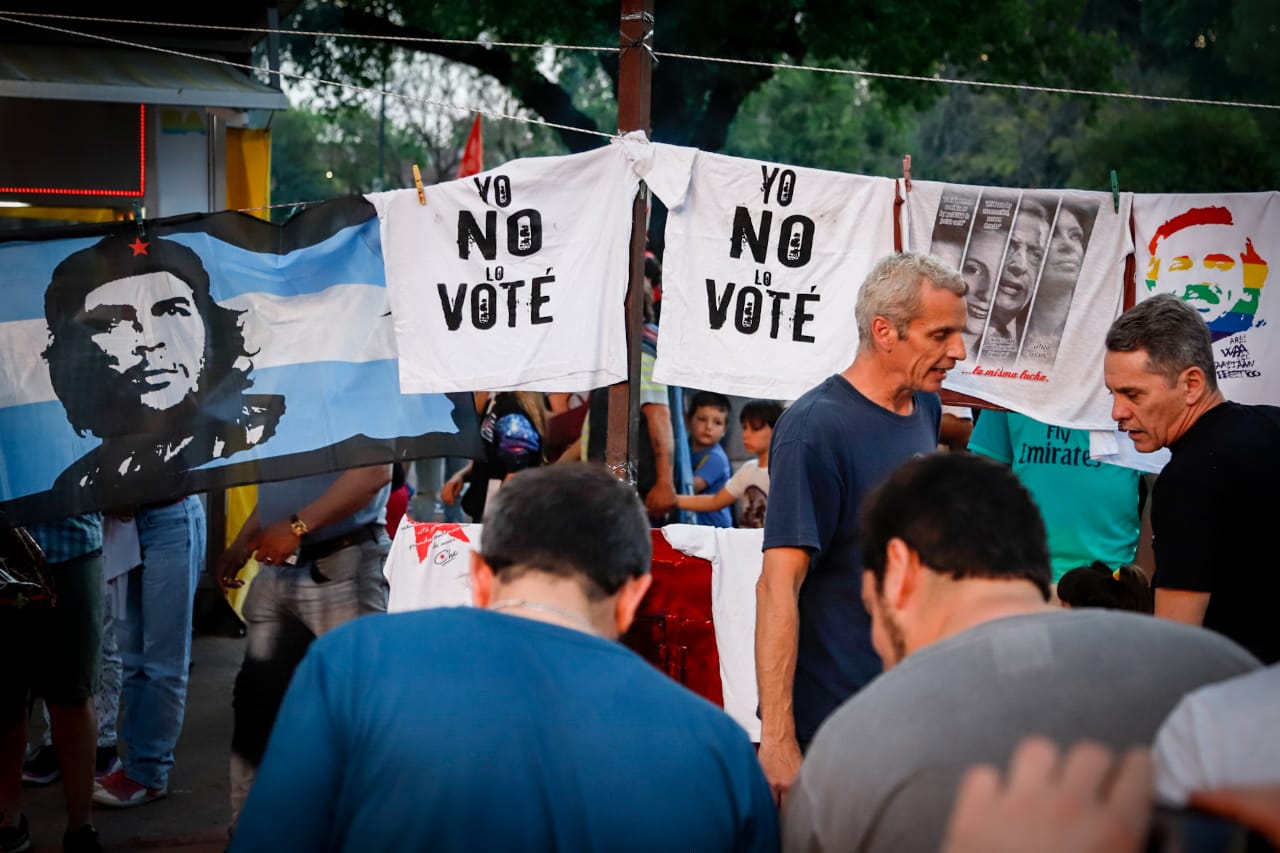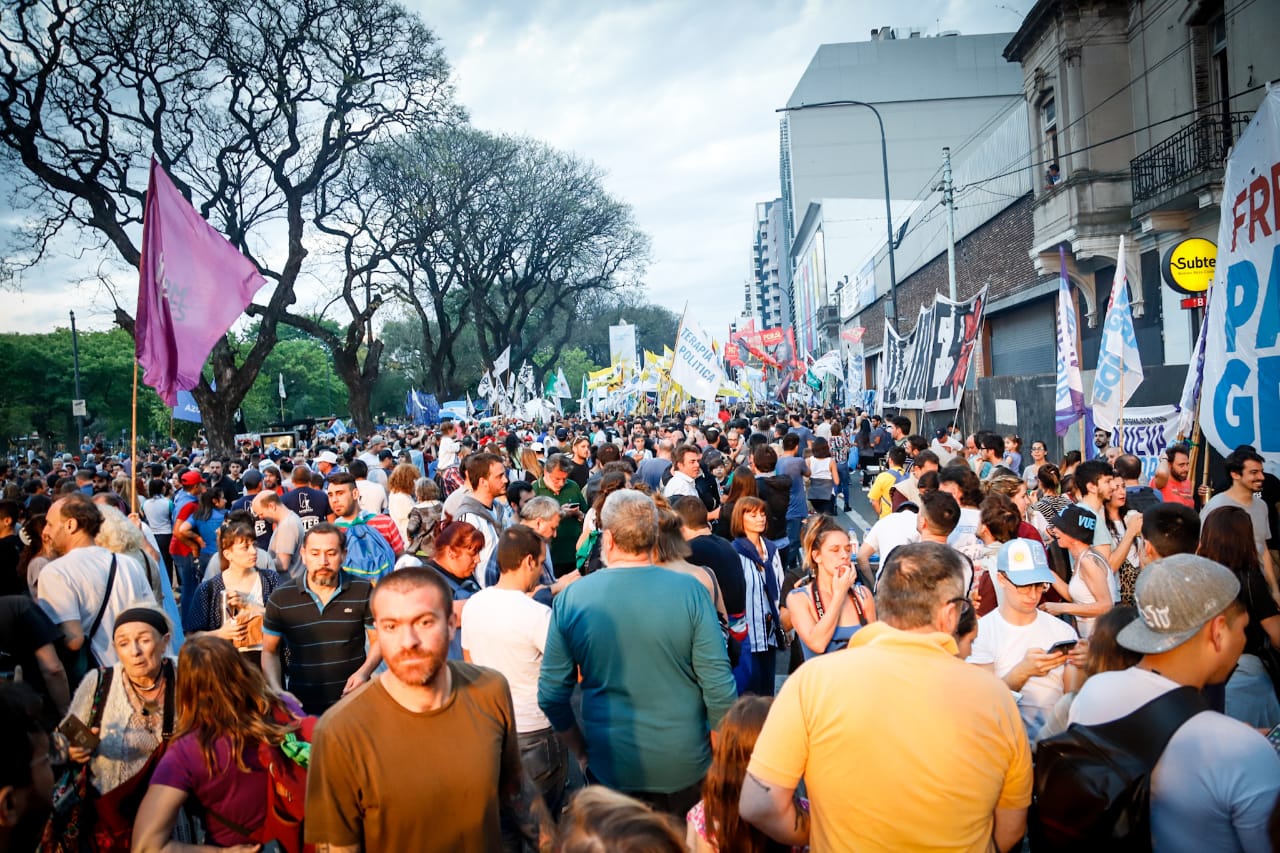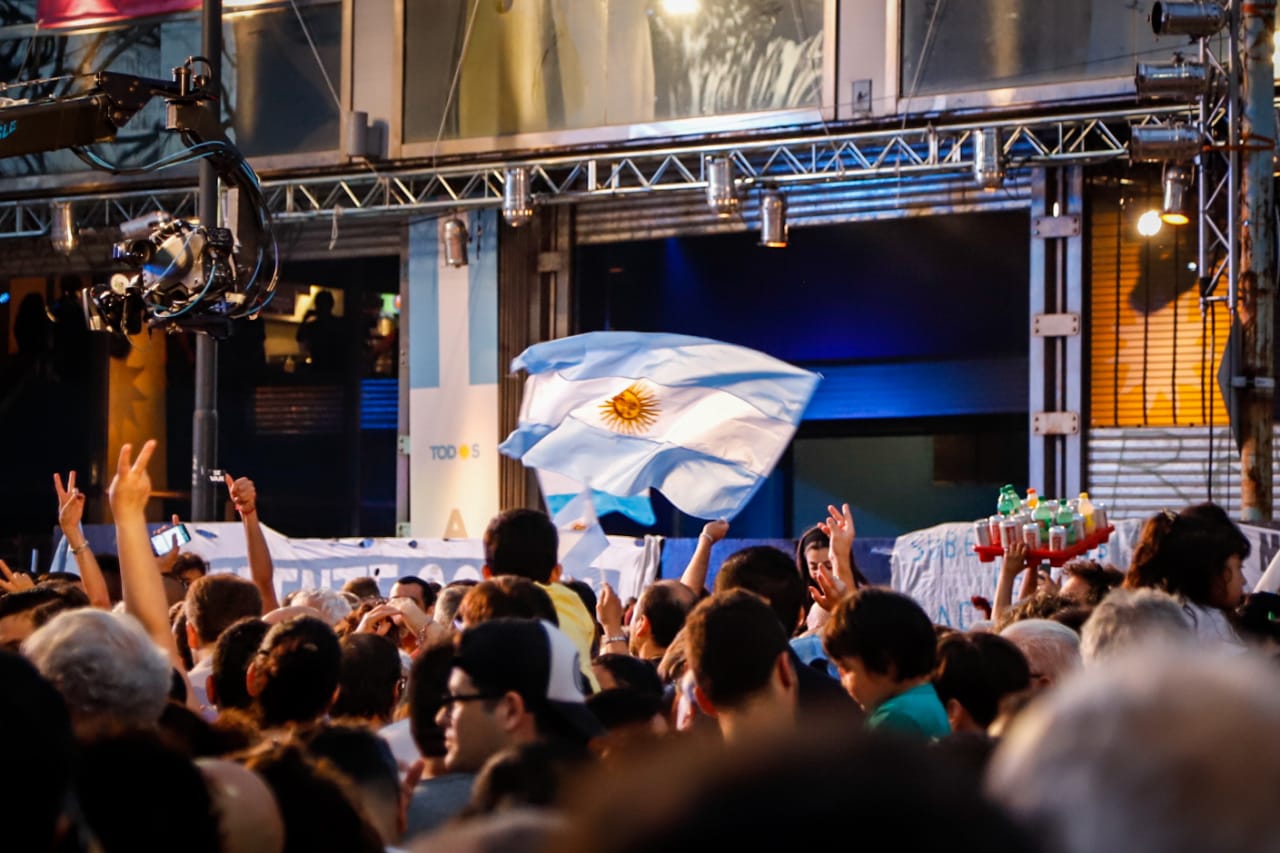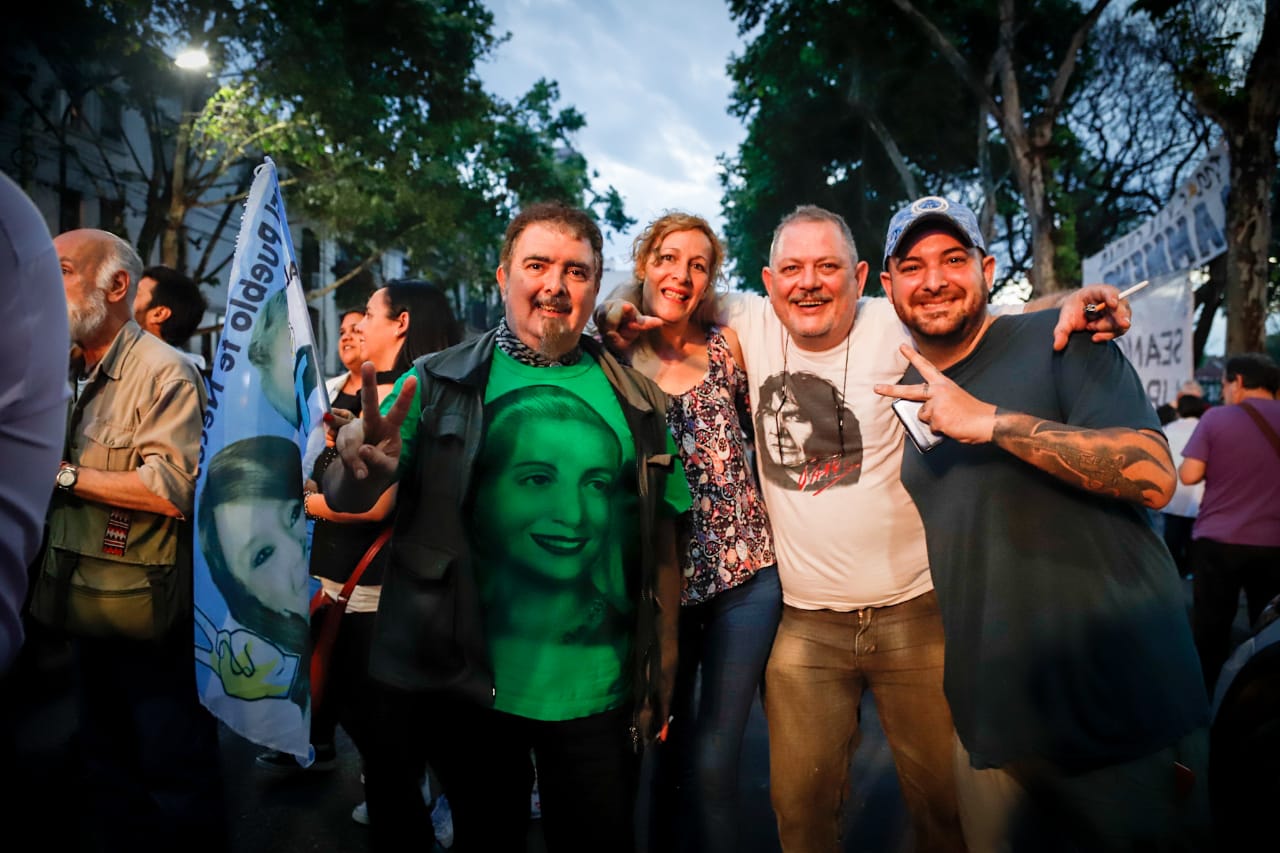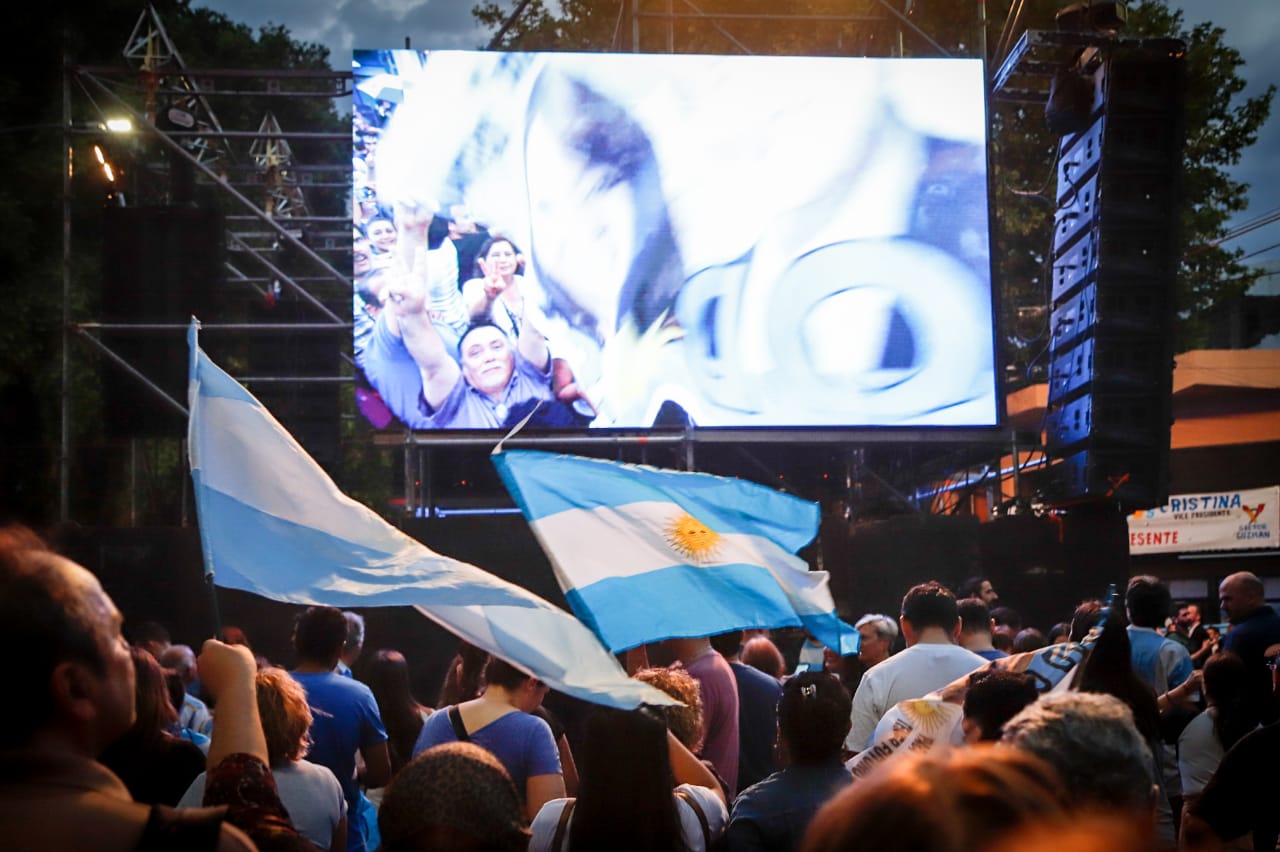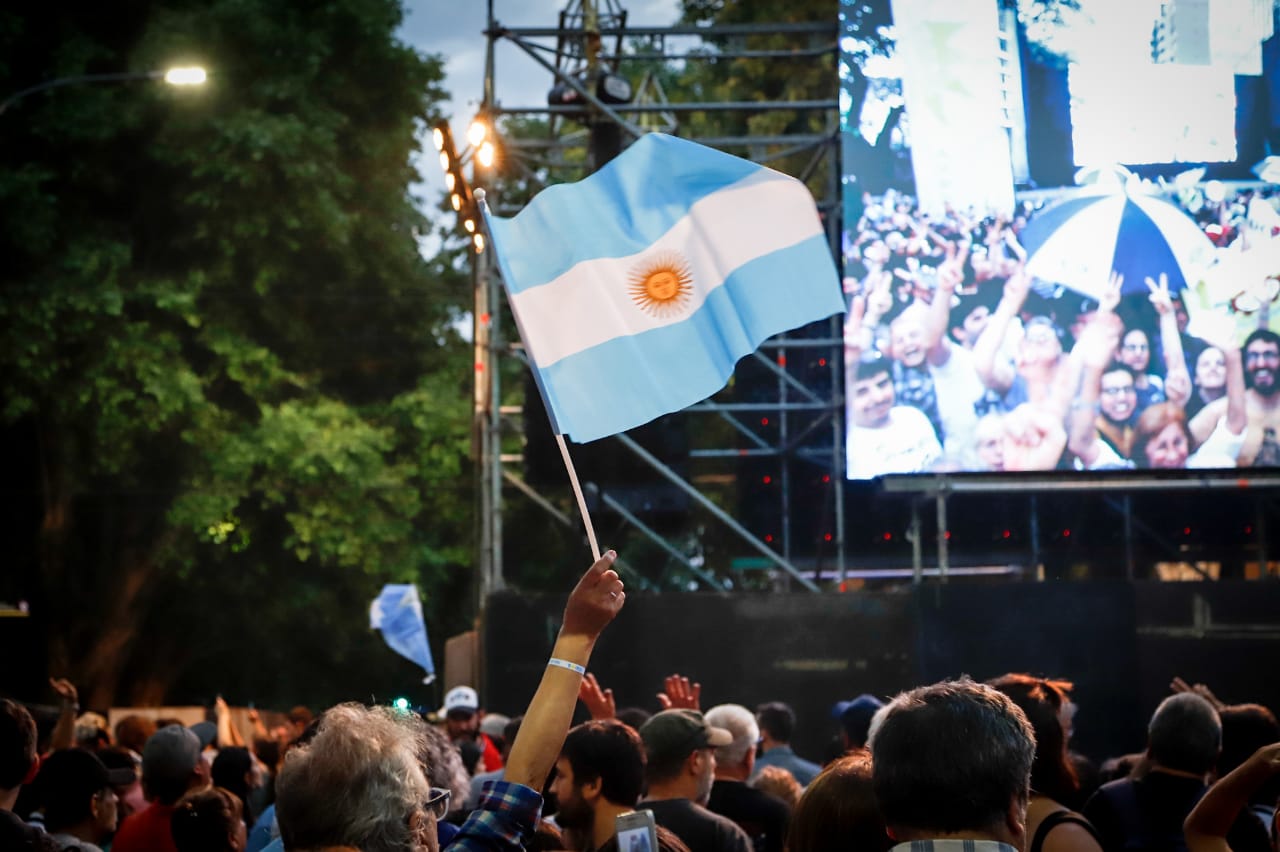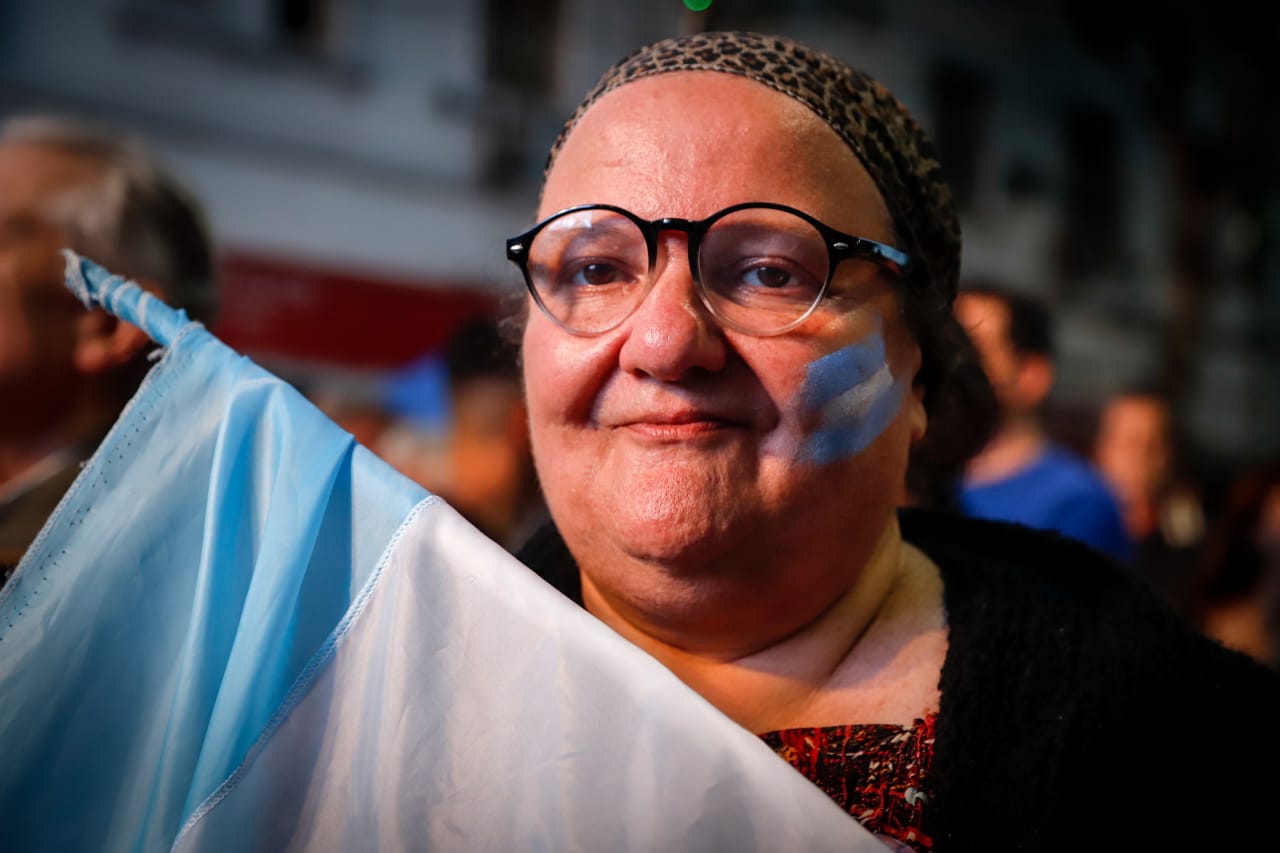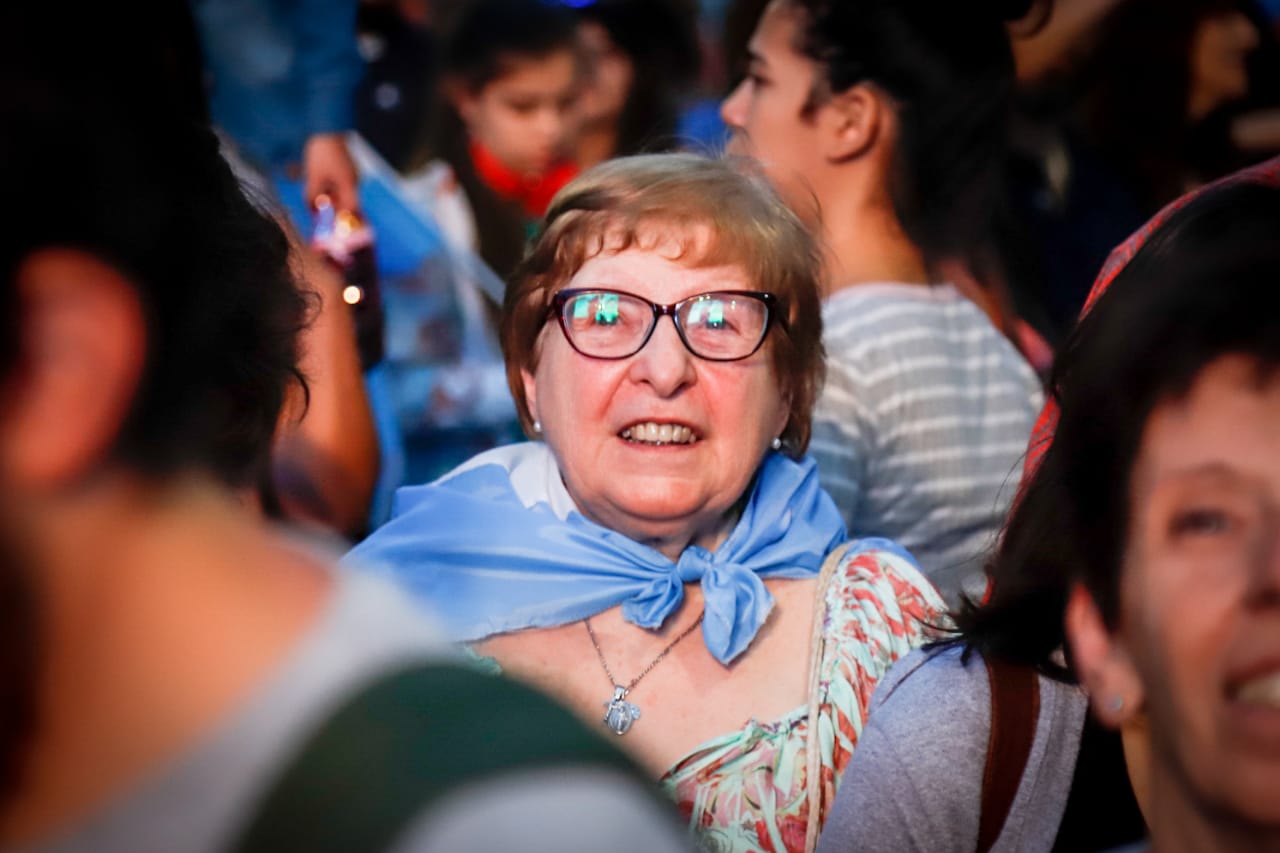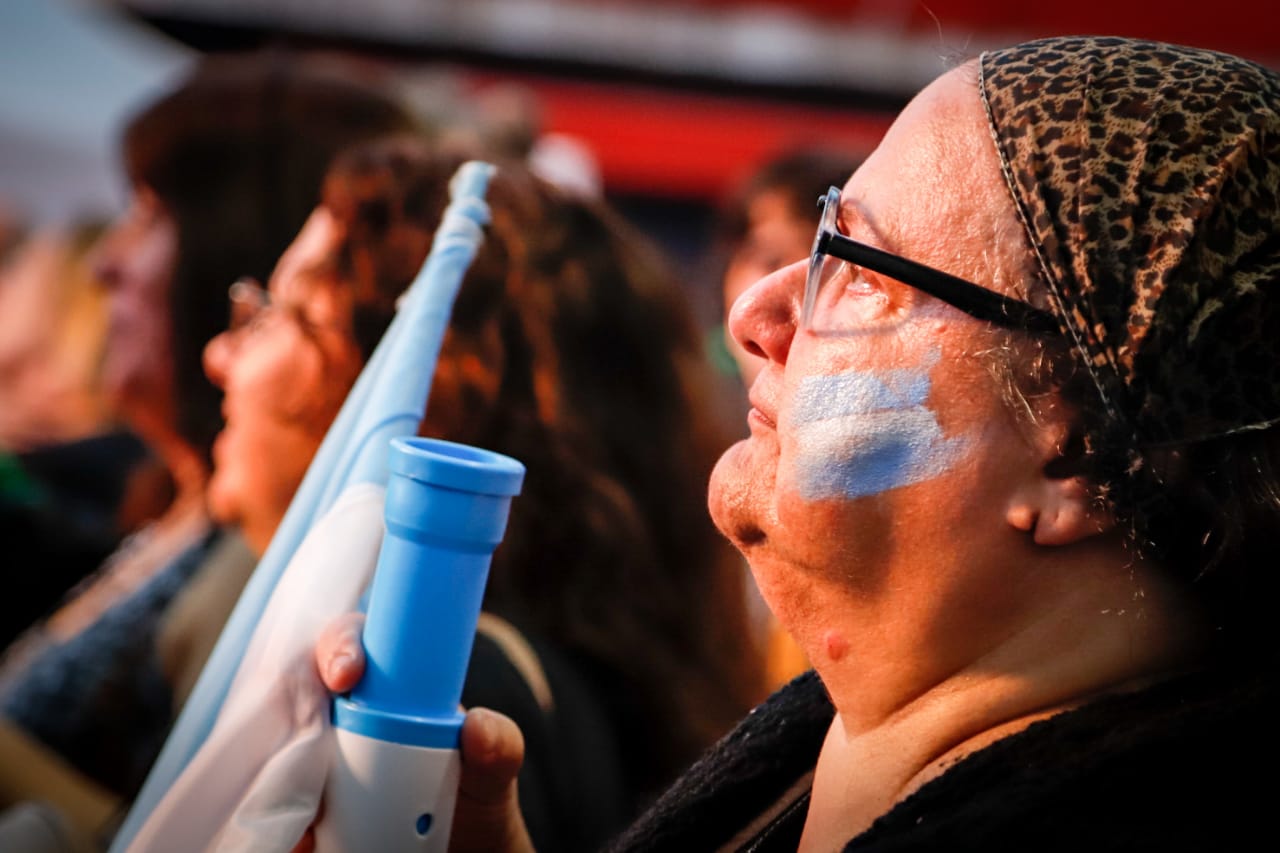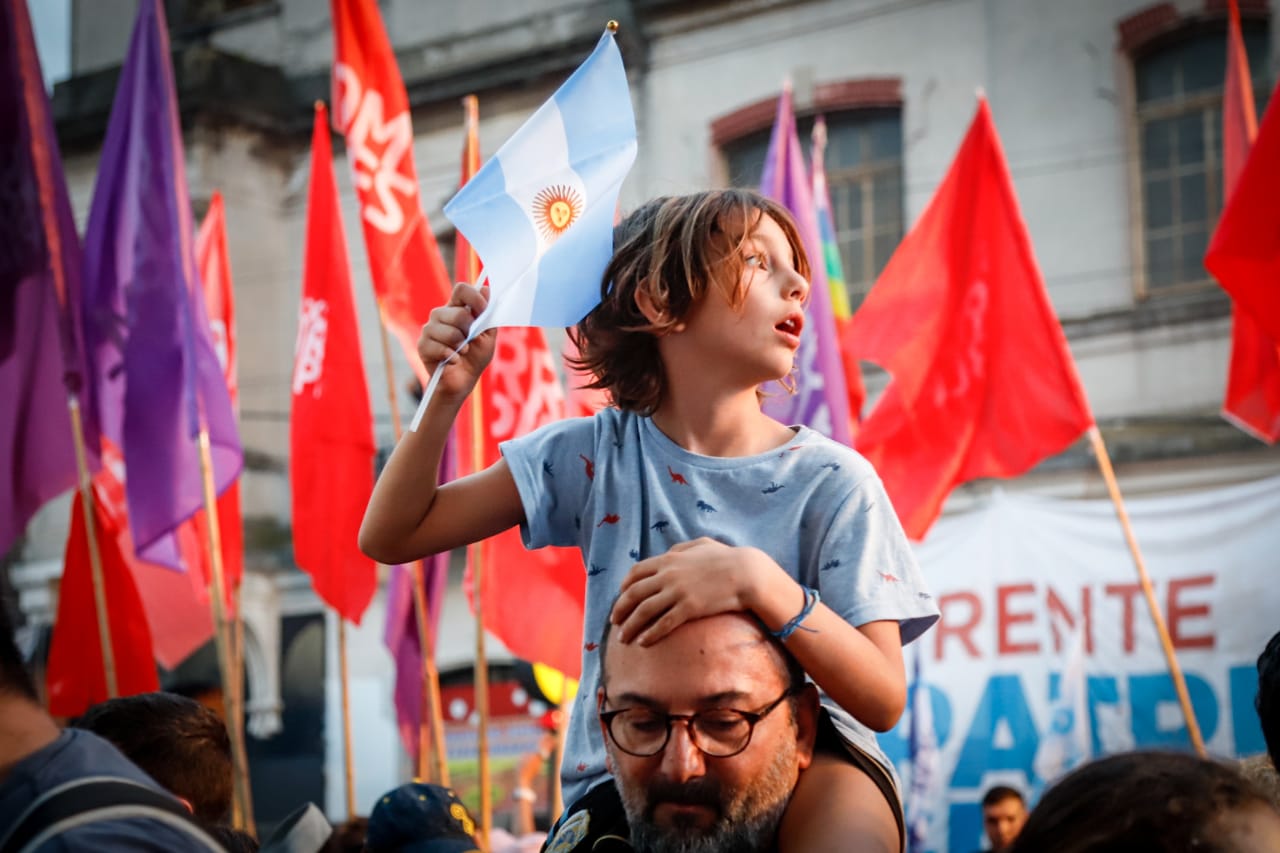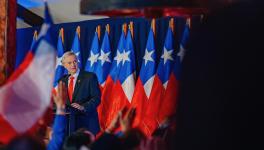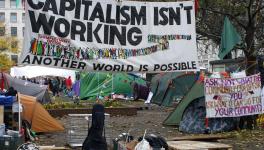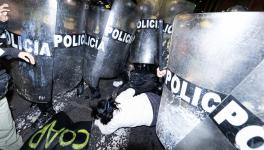Argentina Says: ‘Bye Macri!’
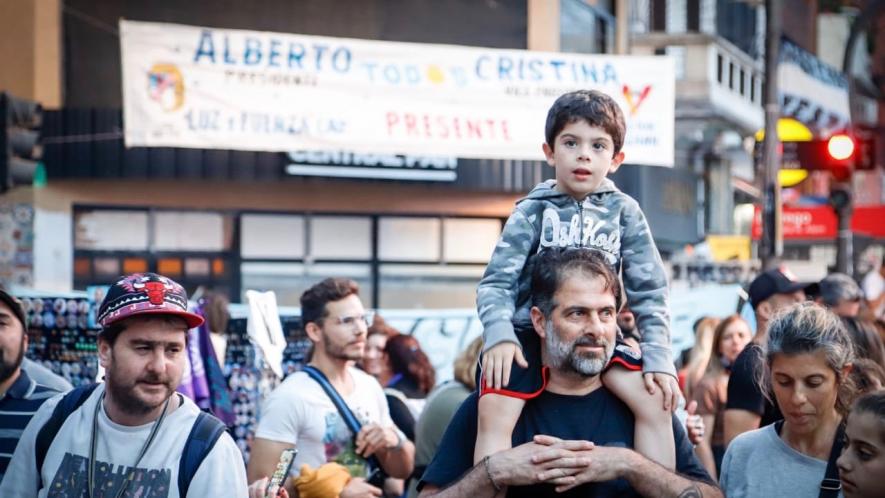
Thousands gathered outside the Frente de Todos campaign bunker to celebrate the victory against Macri. Photo: Rafael Stedile
Center-left candidate Alberto Fernández and his vice president Cristina Fernández de Kirchner of the Frente de Todos (The Front for All) coalition defeated the neoliberal president Mauricio Macri in the general elections held in Argentina on October 27. After counting 97% of the votes, the Fernández ticket received 48.1% of the votes, while Macri received 40.4%, giving the progressive leaders the necessary margin to avoid a second round of election.
According to Argentine constitution, in order to have an outright victory, a candidate needs more than 45% of the votes or more than 40% with a 10% lead over the second-place runner.
The new president thanked the people for their support and vowed to build a better Argentina. “Thanks again to all the people who accompanied and supported us during these months. Now, it is time for us to work together to build the Argentina we dream of. An Argentina for everyone. An Argentina on its own feet,” tweeted Fernández.
The incumbent president, Mauricio Macri, recognized the election results and congratulated his political rival and the new president of the country. Fernández will assume office as the president of Argentina on December 10 for a four-year term.
Leaders from several Latin American countries, including Bolivia, Venezuela, Cuba and Mexico, and from across the globe, congratulated the newly elected president of Argentina after his victory in the general elections, and highlighted the symbolic importance of the defeat of the neoliberal, right-wing in Argentina.
Another key defeat of Macrismo was given in the Buenos Aires provincial elections where Axel Kicillof of Frente de Todos defeated incumbent María Eugenia Vidal of the Juntos por el Cambio coalition.
Over 33.8 million Argentinians had the opportunity to vote in the general elections to elect the president and vice president, 24 senators and 130 representatives to the Chamber of Deputies.
Tens of thousands of people celebrated the defeat of Macrism and approached the campaign bunker of Fernández on Sunday night, where they were addressed by the new president, new vice president and the new governor of Buenos Aires province.
“I want to thank all the Argentine people on this historic day for democracy,” said Alberto Fernández. “The only thing that matters is that the Argentinians stop suffering once and for all,” he added.
“I want to thank the hundreds of thousands of anonymous citizens who have resisted” and because of which “Today, Alberto is the president of all Argentinians,” said Cristina Kirchner in her speech at the bunker.
“The panorama we have after the government of Macri and Vidal is of scorched earth,” said governor Kicillof. He announced that “a stage of reconstruction of the province is coming” and promised “we will govern with everyone and for everyone.”
The triumph of Fernández represents the triumph of the progressive, pro-people, anti-neoliberal, and anti-imperialist tendency against the neoliberal, militaristic, racist, xenophobic, pro-US imperialist and anti-Venezuelan tendency represented by Macri in Argentina, Bolsonaro in Brazil, Piñera in Chile, Moreno in Ecuador, and Duque in Colombia.
Fernández comes to the government in a difficult scenario nationally and regionally. Macrism has been democratically thrown out of power, but it has left the country in a serious economic crisis. Over 40% of the Argentine population lives below the poverty line, unemployment has increased by more than 10%, the Argentine peso devalued 566% since Macri took office in December 2015, and the country is under the dark shadow of the loan from the International Monetary Fund (IMF). The public institutions of Argentina as well as government ministries and departments have also been gutted and dismantled, as per IMF diktats to cut costs. As such, the new government faces a tough challenge of stabilizing and structurally reforming a country in a deep institutional, political, social and economic crisis.
Images from the streets of Buenos Aires, Argentina on election night. Photo: Rafael Stedile
Get the latest reports & analysis with people's perspective on Protests, movements & deep analytical videos, discussions of the current affairs in your Telegram app. Subscribe to NewsClick's Telegram channel & get Real-Time updates on stories, as they get published on our website.









